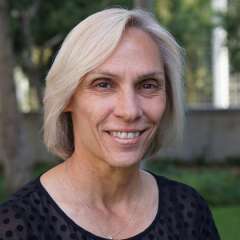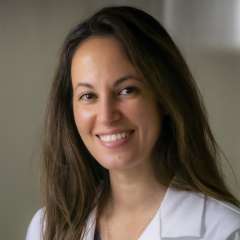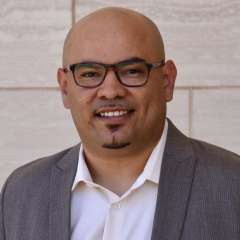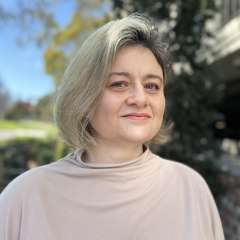Pilot & Feasibility Program

As part of our mission to support the Comprehensive Liver Research Center's (CLRC) research base and stimulate collaborations in metabolic dysfunction-associated steatotic liver disease (MASLD) spectrum research, the center will support three, 1-year pilot and feasibility awards for a maximum of $25,000 total costs each.
Scope of projects
The pilot and feasibility mechanism seeks to fund innovative projects that explore basic-translational mechanisms into the pathophysiology of the MASLD-MASH-cirrhosis-HCC spectrum. It also supports researchers and clinicians who team up with community-engaging researchers and healthcare providers to directly address questions related to the impact of ethnic and racial factors on MASLD spectrum susceptibility and/or development of tools to stimulate patient engagement from under-represented groups.
Expectation
The expectation is that awardees use interdisciplinary approaches and unique partnerships to better understand MASLD spectrum disease mechanisms and/or racial ethnicity-related factors driving MASLD spectrum susceptibility in certain populations in the greater Los Angeles area. It is expected that pilot and feasibility studies will generate preliminary data that will be used by these investigators in R01 (or K series, when applicable) applications in the years following their award.
- Pilot and Feasibility Program Director: Karen Reue, PhD, UCLA; [email protected]
Pilot and feasibility awardees
The impact of genetic risk and social determinants of health on the clinical outcomes of patients with metabolic dysfunction associated steatotic liver disease
Jihane N. Benhammou, MD, PhD - Assistant Clinical Professor Medicine, Vatche and Tamar Manoukian Division of Digestive Diseases
Jasleen Singh, MD - Health Sciences Clinical Instructor of Medicine and Surgery, Vatche and Tamar Manoukian Division of Digestive Diseases, Pfleger Liver Institute, Dumont-UCLA Liver Transplant Center
Funding: $20,000; 2025

Dr. Benhammou's research is focused on understanding the molecular and clinical predictors of metabolic dysfunction-associated steatotic liver disease (MASLD) and MASLD-associated hepatocellular carcinoma (HCC) in diverse populations. Her research group also aims to understand the role and mechanisms of statins and other chemo-preventive agents for HCC prevention. She conducts multidisciplinary research at UCLA and Veterans Affairs Greater Los Angeles Health Systems and uses transdisciplinary approaches including population genetics and clinical/environmental risk factor identification, to guide further mechanistic studies in patient-derived organoids and mouse models. Benhammou Lab

Dr. Singh specializes in general and transplant hepatology and treats patients across the spectrum of liver disease, from benign liver conditions to complications of cirrhosis and liver transplant evaluation. She also provides post-transplant care. Dr. Singh has a particular interest in alcohol-related liver disease and hepatocellular carcinoma. Dr. Singh has been involved in clinical research in alcohol-related liver disease and hepatocellular carcinoma.
Utilizing spatial RNA-sequencing to investigate the role of senescent macrophages in MASLD
Anthony J. Covarrubias, PhD - Assistant Professor, Department of Microbiology, Immunology, and Molecular Genetics
Funding: $20,000; 2025

Dr. Covarrubias is a macrophage biologist with expertise in immuno-metabolism, and how inflammation and metabolism are integrated to regulate metabolic health and disease states including aging, NAFLD, cancer, and cardiovascular disease. Dr. Covarrubias’ recent work is focused on how diet and aging-related inflammation impacts the aging process. In a recent manuscript he showed that the decline of NAD+ during aging is driven by the activation of tissue resident macrophages via senescent cells. As senescent cells progressively accumulate in aging tissues, these results highlight a new causal link between visceral tissue senescence, NAD+, and immuno-metabolic dysregulation during aging, an active area of investigation in the .
Unraveling drivers of severe MASH in Mexican bariatric patients: Focus on gene-sex and gene-environment interactions
Dorota Kaminska, PhD - Assistant Project Scientist, David Geffen School of Medicine at UCLA
Funding: $20,000; 2025

Dr. Kaminska completed her MSc and Eng degree in biotechnology, with a major in molecular biology, at Wroclaw University of Science and Technology in Wroclaw, Poland. She then earned her PhD in Molecular Medicine at the University of Eastern Finland in Kuopio, Finland.
Before joining UCLA, she held research positions at the University of Eastern Finland; Turku PET Centre in Turku, Finland; and the Polish Academy of Sciences in Krakow, Poland, where she studied the molecular mechanisms of pain and addiction, obesity, weight loss, and MASLD.
At UCLA, she was recruited as an assistant project scientist, where she applies multi-omics approaches to investigate the genetic regulation of mitochondrial function in the liver and interorgan crosstalk in MASLD. Her research integrates data from the Hybrid Mouse Diversity Panel (HMDP) and human studies to explore MASLD pathogenesis and fibrosis progression. She continues to advance the understanding of metabolic disease pathophysiology, leveraging computational and experimental approaches to uncover mechanisms underlying liver dysfunction, fibrosis, and sex differences in MASLD.

Oral alpha-ketoglutarate supplement to prevent MAFLD progression in post-menopausal women
Claudio Scafoglio, MD, PhD - Associate Adjunct Professor, Pulmonary and Critical Care, David Geffen School of Medicine at UCLA
Funding: $15,000; 2025
Dr. Scafoglio completed his MD and PhD degrees in oncology and immunology in Naples, Italy at the Seconda Universita’ degli Studi di Napoli. He received post-doctoral training at UC San Diego in molecular medicine focusing on molecular mechanisms of transcriptional and epigenetic regulation, and a second postdoctoral training at UCLA in oncological molecular imaging (an NIH-funded T32 program). At UCLA, he led projects investigating glucose uptake and utilization in cancer, resulting in publications in the Proceedings of the National Academy of Science (2015), Science Translational Medicine (2018), and Cancer Research (2024). In 2017, he joined the pulmonary and critical care medicine faculty for his studies on the role of glucose transporter SGLT2 as a diagnostic and therapeutic target in lung cancer. In 2025, he joined the UCLA Comprehensive Liver Research Center for his interest in 1) the efficacy of SGLT2 inhibitors as chemopreventive agents for hepatocellular carcinoma; 2) the role of nutritional alpha-ketoglutarate supplementation as a chemopreventive strategy for liver cancer; 3) the beneficial activity of oral alpha-ketoglutarate on liver inflammation and in prevention of liver steatosis. Dr. Scafoglio Profile